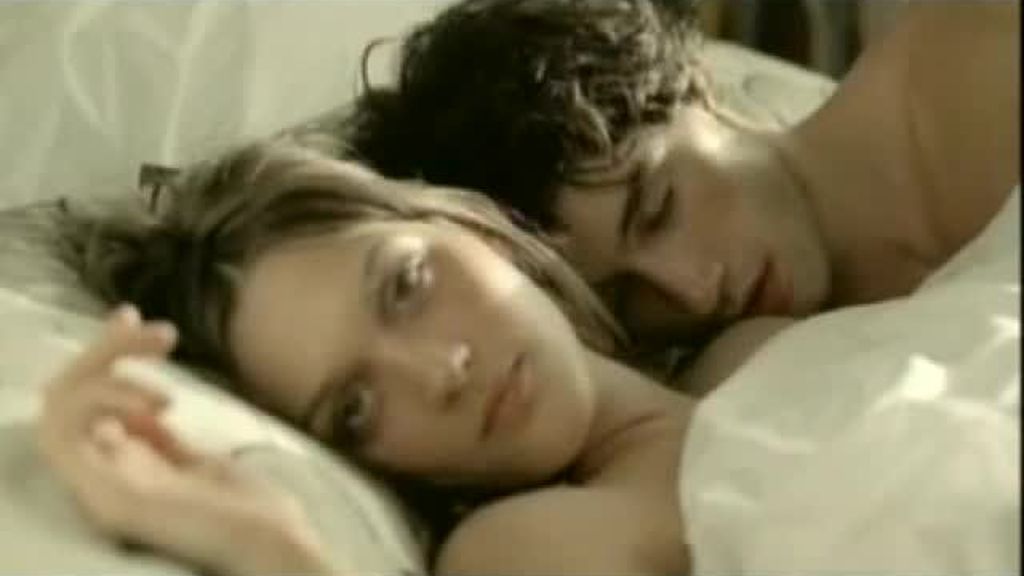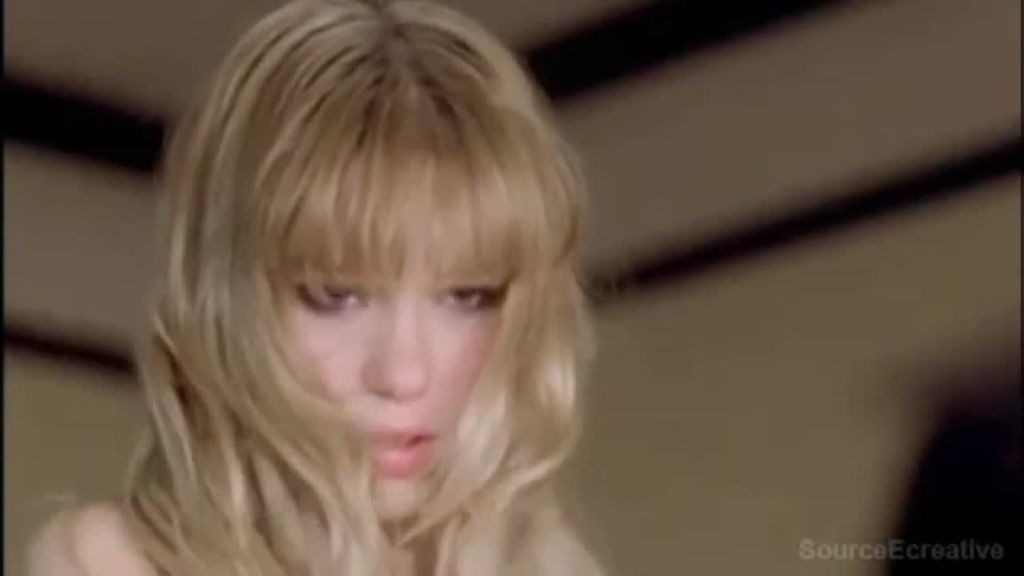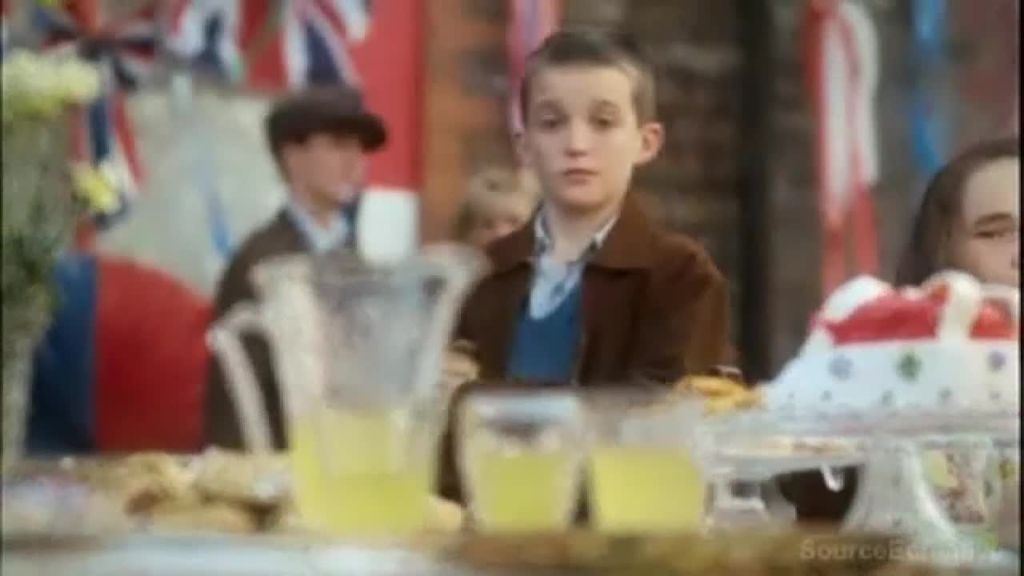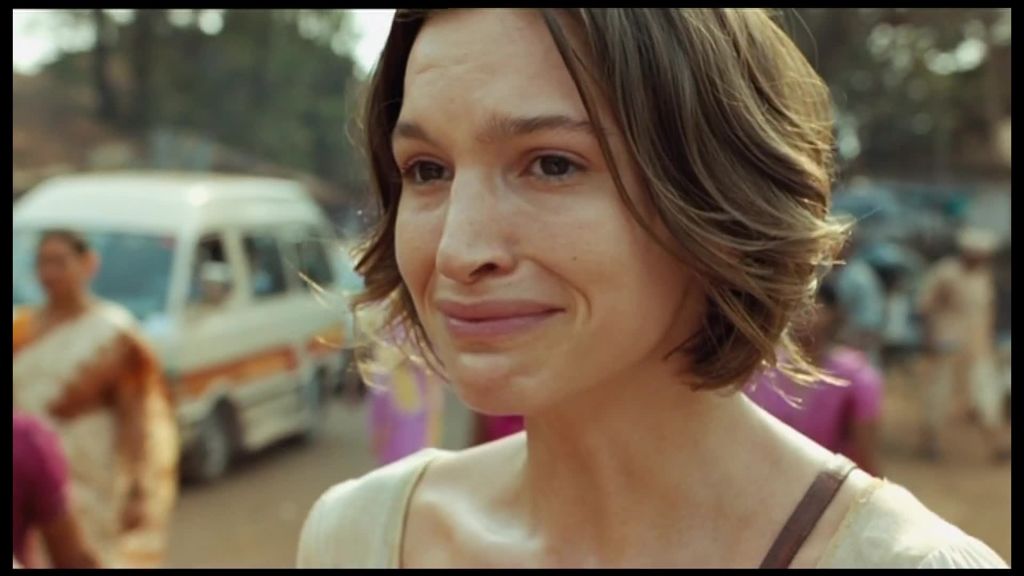Creative Correspondence: Ringan Ledwidge & Nina Meredith
Ad legend Ledwidge talks to Rattling Stick rising star Meredith about beginnings in journalism, shooting a Christmas icon and underrated Jack Nicholson movies.
If you're putting together a list of the greatest ads of all time, there's a fair chance that Ringan Ledwidge's name will pop up more than once or twice.
The director and co-founder of international production company Rattling Stick came from a career in photojournalism to making a huge mark in the world of commercials, helming iconic spots for the likes of Sainsbury’s, Britvic, Hovis, John Lewis, Puma, Axe, Barnardo’s and The Guardian to name but a few.
It's this journalistic background that no-doubt attracts him to the work of his Creative Correspondance collaborator, and Rattling Stick director, Nina Meredith, whose films straddle the cinematic and documentary to create poignant and intimate portraits.
Together they talk big breaks in the industry, what brought them behind the camera, and how, if it all ended tomorrow, we might see a trick or two...
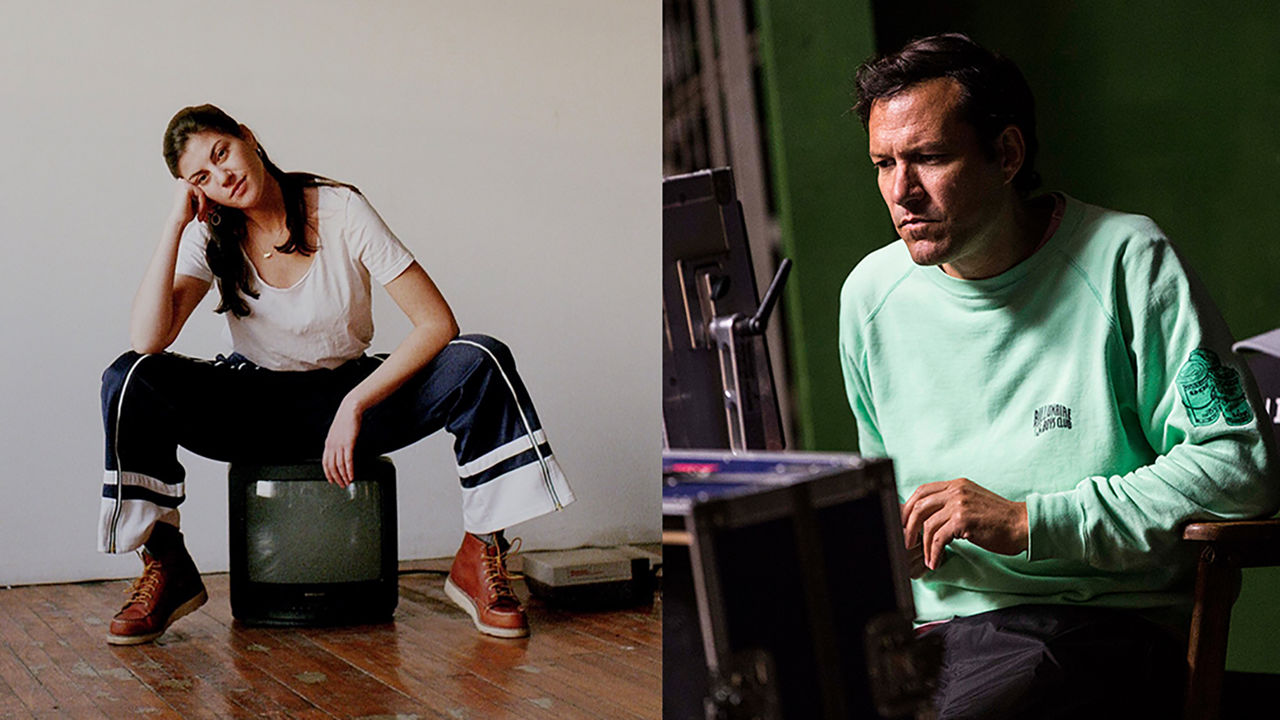
Above: Nina Meredith and Ringan Ledwidge.
Nina Meredith: What’s one film you’ve rewatched lately and were pleasantly surprised by watching this time around? Why?
Ringan Ledwidge: Ooooooh. That’s a good one!!! I’m sure like many I’ve delved into my ‘movies I loved’ memories from the past as a way of lifting the gloom of the pandemic. My last one was The Witches of Eastwick. And it was as good as or maybe even better than I remembered. The main reason - Jack Nicholson. I didn’t realize how much I missed him. He just has some kind of special sauce that allows him to be completely over the top and entertaining all at the same time, and let's be honest who else could play a character called ‘Daryl Van Horne’.
On top of that you’ve got Cher, Susan Sarandon and Michelle Pfeiffer as the unwitting witches who eventually do battle with Jack. It’s pure escapism. What's not to love!
My go! I love, love your film about the female Native American boxer. It’s wonderfully insightful, empathetic and beautifully shot. Did you learn anything during the shoot or edit that you feel will benefit your commercial work?
NM: Oh man, what an all-star cast! That's a good shout and I'm going to add that to my list of films to re-watch.
Mariah: A Boxer's Dream was the first independent film I really believed in myself to execute and knew I had to make it. It was the complete definition of a passion project and luckily, the film found a home in the end. What I learned most throughout the process that I carry over to commercial directing is a mindset. It's to trust the process, trust your gut and trust your collaborators. I know it sounds simple but I never truly felt that before.
Credits
powered by
-
-
- Director Nina Meredith
-
-
Unlock full credits and more with a Source + shots membership.
Credits
powered by
- Director Nina Meredith
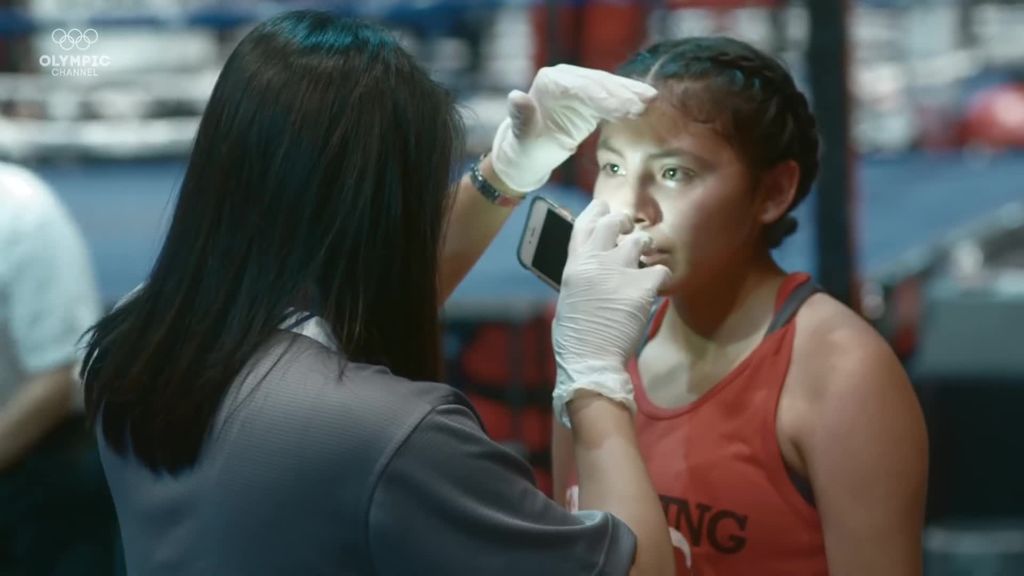
Credits
powered by
- Director Nina Meredith
Above: Meredith's Mariah: A Boxer's Dream.
The project showed me how many people wanted to come on board and bring their own craft and passion to the film. It was all so magical. It is hard giving up control but in documentary, you have to embrace it. I didn't know what was going to happen or how some scenes were to unfold, but believing in the process turned out to be a really beautiful thing.
Ok, my turn! How and why did you transition from your career in photojournalism to directing for some of the world's largest brands?
RL: I’d like to say that my transition from photography to filmmaking was well-planned and coordinated but that would be a crock of shit!!
I’ve always loved movies and all things film but where I came from that just wasn’t on the radar. I'd returned from a stint of travelling and taking pictures and was unsurprisingly skint!! So…. hawking my photography book around advertising agencies seemed like the obvious shout in regards to potentially making some money.
I think my naivety about the industry and how competitive it was was probably no bad thing. I hunted down art directors whose work I liked and basically stalked them and bothered them until they agreed to take a look at my work.
Much of what I focused on in my photography was conveying or capturing an emotion or feeling in one frame. Filmmaking gave me many frames to try and find that emotional truth.
A wonderful art director called Steve Wallington opened his door to me, liked my work and gave me other people's details who he thought my work might chime with. I then badgered these poor people to see me and insisted that they gave me at least two more contacts. Then a couple of guys Kim [Papworth] and Tony [Davidson], who ran W&K London asked if I’d ever thought about directing. Which I hadn’t. With their help and some other mates' help we worked together and the result wasn’t too bad. I’d enjoyed myself and figured this is for me.
Axe – Getting Dressed
Levi's – Dangerous Liaison
Hovis – Go On Lad
Orange – Rewind City
Above: Some of Ledwidge's early work.
The transition from telling stories through still to moving just felt like a natural progression. Much of what I focused on in my photography was conveying or capturing an emotion or feeling in one frame. Filmmaking gave me many frames to try and find that emotional truth and that’s something I continue to love and enjoy pursuing. It’s this simple ingredient that I look for in any script I take on.
No matter how big or small I know if the film can resonate on some emotional level it can make an impact.
Okay. So, next. What about you? Was there a moment or event that made you realize you wanted to be a filmmaker?
NM: Well, I'd love to thank Kim and Tony for opening that door for you. I always say it just takes one person to give you the chance, much like how you opened the door for me and I hope to do that for others. I'd also really be interested in framing an original RL print from your early days!
I also started out as a film photographer and had big dreams of becoming the next Cindy Sherman, Nan Goldin or Steven Shore. I sent my portfolio to magazines and book publishers and worked as an assistant photo editor at NYMagazine and loved working with pro photographers.
I was always drawn to documenting people but never knew that I could have a career in it.
I was always drawn to documenting people but never knew that I could have a career in it. So I decided to jump into advertising and work my way up the ladder in production and that's when I really got to witness the magic of watching directors in action (and producing for them, yearning for the chance to do what they did). And then really during my days at Vice Media was when my passion for commercials and documentaries intersected and I began telling stories and directing commercials and docs and never ever looked back.
Is there a commercial you've directed that sticks with you above the others and why?
RL: I think someone was always going to give you a chance Nina. I’m just lucky that it got to be me. But yes, putting back in is really important. In my early days I had some really great people help me out, so it just feels like that sense of creative community is important to do and to pass on. A big part of what we need to do as creators is help clear the path for new exciting talent, from whatever background, to flourish and prosper. Selfishly I also know I’m gonna learn a ton from you too!!!
I've got a lot of good feelings about a fair bit of the commercials I’ve shot. Sometimes it’s to do with the end product and often it’s to do with the process and people I worked with.
In regards to a commercial that stuck with me above others? That's a tricky one!! I've got a lot of good feelings about a fair bit of the commercials I’ve shot. Sometimes it’s to do with the end product and often it’s to do with the process and people I worked with.
One that sticks out to me in particular because of what it meant to me on a personal level is the Sainsburys Christmas is for Sharing film. My Great Uncle Francis Ledwidge fought and died in WW1’s Battle of Passchendaele at the age of 29. He was a war poet and a lot of his work was published after his death and became part of the school curriculum. He was Irish and much of his poetry was about the beauty of his homeland. His choice to fight in the war was really interesting and controversial considering he was politically and heavily involved with Sinn Fein, and a real patriot. In short he was opposed to the English occupation of Ireland so his fighting against the Germans wasn’t straightforward. He was trying to see the bigger picture.
Credits
powered by
- Agency AMV BBDO/London
- Production Company Rattling Stick
- Director Ringan Ledwidge
-
-
Unlock full credits and more with a Source + shots membership.
Credits
powered by
- Agency AMV BBDO/London
- Production Company Rattling Stick
- Director Ringan Ledwidge
- Producer Rebecca Scharf
- CD Alex Grieve
- CD Mike Durban
- CD Adrian Rossi
- CD Tony Strong
- Art Director/Writer Tim Riley
- Agency Planner Cat Wiles
- Agency Planner Craig Mawdsley
- Producer Nikki Holbrow
- Producer Kate O'Mulloy
- Producer Sally Humphries
- Post The Mill/London
- Editor Richard Orrick
- Audio post Aaron Reynolds
- Sound Engineer Tony Rapaccioli
- Award Body APA Advertising Producers Association
- Producer James Hatcher
- Colorist Aubrey Woodiwiss
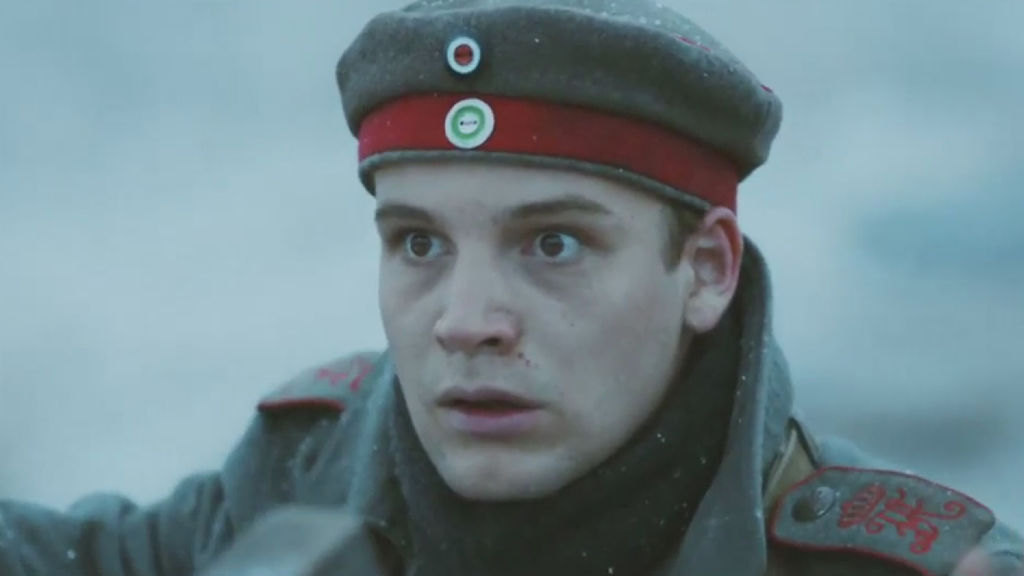
Credits
powered by
- Agency AMV BBDO/London
- Production Company Rattling Stick
- Director Ringan Ledwidge
- Producer Rebecca Scharf
- CD Alex Grieve
- CD Mike Durban
- CD Adrian Rossi
- CD Tony Strong
- Art Director/Writer Tim Riley
- Agency Planner Cat Wiles
- Agency Planner Craig Mawdsley
- Producer Nikki Holbrow
- Producer Kate O'Mulloy
- Producer Sally Humphries
- Post The Mill/London
- Editor Richard Orrick
- Audio post Aaron Reynolds
- Sound Engineer Tony Rapaccioli
- Award Body APA Advertising Producers Association
- Producer James Hatcher
- Colorist Aubrey Woodiwiss
Above: Ledwidge's iconic Christmas film for Sainsbury's.
In regards to making the film, I really wanted to honour him and the other men that died in what was probably one of the most brutal wars ever in terms of loss of life and the sheer horror of it. The story of the Germans and Allies playing football on Christmas day is an incredibly beautiful and powerful moment in time. It happened all along the Western Front and there are numerous stories of these enemies coming together, playing football, drinking, chatting, talking about one another's families. To me this very basic human act transcended the rivalries and preconceptions we can often be taken by.
The story of the Germans and Allies playing football on Christmas day is an incredibly beautiful and powerful moment in time.
These men, despite the brutality of what they were living, were able to understand that although they fought for opposite sides they were the same; Shared similar experiences in terms of love, hobbies, humour and most importantly they shared a respect for one another.
That ability to see one another is something I sadly feel we’re a million miles away from today.
Okay!! Next question. Both of us started our journeys through photography. I just wondered what kind of influence your job working as a photo editor at NYMagazine has had on your filmmaking choices?
NM: That's beautiful Ringan and I had no idea the backstory. What an honor and tribute to your Great Uncle. I believe the most personal work is always the most special. The posthumous published works turned into curricula is also a fascinating part of the story. I'm glad others are benefiting from his works.
Credits
powered by
- Agency MediaMonks/Los Angeles
- Production Company Rattling Stick/USA
- Director Nina Meredith
-
-
Unlock full credits and more with a Source + shots membership.
Credits
powered by
- Agency MediaMonks/Los Angeles
- Production Company Rattling Stick/USA
- Director Nina Meredith
- Creative Director Leanne Chabalko
- Edit Company MediaMonks/USA
- Music Coordination The Elements Music
- VFX/Post Company Company 3/Los Angeles
- Colorist Tyler Roth
- Producer Mario Castro
- Sound Designer/Audio Mixer Drew Weir
- Sound Designer/Audio Mixer Jordan Stalling
- Executive Producer Tim Konn
- Producer Louise Rider
- Director of Production Debora Den Iseger
- Global Creative Director Ximena Keirouz
- Executive Creative Director Bruno Prosperi
- Associate Creative Director Brian O’Neill
- Executive Producer Jason Georgen
- Senior Producer Philinese Kirkwood
- DP Logan Triplett
- Line Producer Denise Rocchietti
- Editor David Cea
- Executive Producer Ananda Reavis
- Producer Natasha Sattler
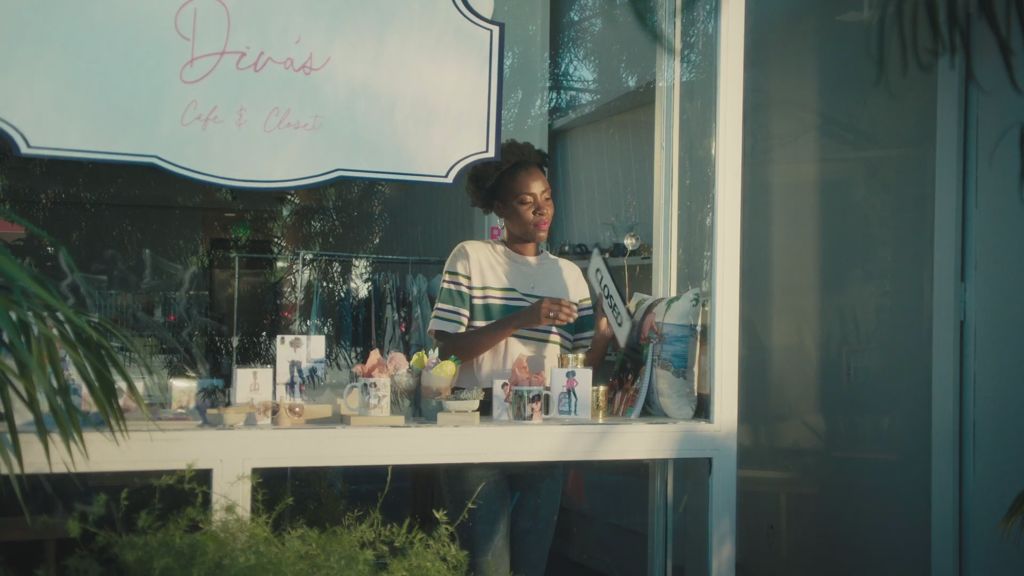
Credits
powered by
- Agency MediaMonks/Los Angeles
- Production Company Rattling Stick/USA
- Director Nina Meredith
- Creative Director Leanne Chabalko
- Edit Company MediaMonks/USA
- Music Coordination The Elements Music
- VFX/Post Company Company 3/Los Angeles
- Colorist Tyler Roth
- Producer Mario Castro
- Sound Designer/Audio Mixer Drew Weir
- Sound Designer/Audio Mixer Jordan Stalling
- Executive Producer Tim Konn
- Producer Louise Rider
- Director of Production Debora Den Iseger
- Global Creative Director Ximena Keirouz
- Executive Creative Director Bruno Prosperi
- Associate Creative Director Brian O’Neill
- Executive Producer Jason Georgen
- Senior Producer Philinese Kirkwood
- DP Logan Triplett
- Line Producer Denise Rocchietti
- Editor David Cea
- Executive Producer Ananda Reavis
- Producer Natasha Sattler
Above: Some of Meredith's commercial work.
Seeing the inside of how a major publishing house worked was eye-opening. I think much like that of advertising agencies, I was able to see how roles functioned and what a CD did, what a producer did, what a copywriter did, how to manage a budget, etc. It provided me the 101 of how an agency functions and also encouraged me to be more creative, to push my art and also introduced me to some incredible photographers who I keep in touch with today. It feels like years ago at this point, but it was a great experience and began my journey of 'working my way up.' In short, it showed me the business side of the art and that was a huge behind the scenes bonus I got to see at age 21.
What's one thing people don't know about you?
RL: Jeez that’s a tricky one!!!!!
Here’s something that not many people know, well that is apart from Sean at Rattling Stick who proofreads my treatments, but I’m pretty badly dyslexic.
It’s not something I’m embarrassed about, it just rarely comes up in conversation, but boy my spelling and grammar can be bad. I’m sure in many ways it’s helped shape me creatively as it forced me, at least early on, into a visual space with my need to tell stories. The confidence to write and not worry about my mistakes came much later.
I’m sure in many ways [dyslexia has] helped shape me creatively as it forced me, at least early on, into a visual space with my need to tell stories.
As for work regrets.. there’s too many to mention!!
There've been many jobs that I’ve lost or passed on that I’ve either understood why the other director got it or that I didn’t see in it what someone else did. Those times of ‘kicking’ myself for losing or not seeing it are where I grow. There’s nothing that gives you fire in the belly more than being challenged. It’s how you up your game and improve. At least that’s how it is for me.
So here's the last question…. If you weren’t a director what would you be?
NM: Easy... an illusionist/magician.
You?
RL: Ha!!! Nice one! Me? Always quite liked the idea of being a ’scenic painter’.
It seems quite meditative!
)

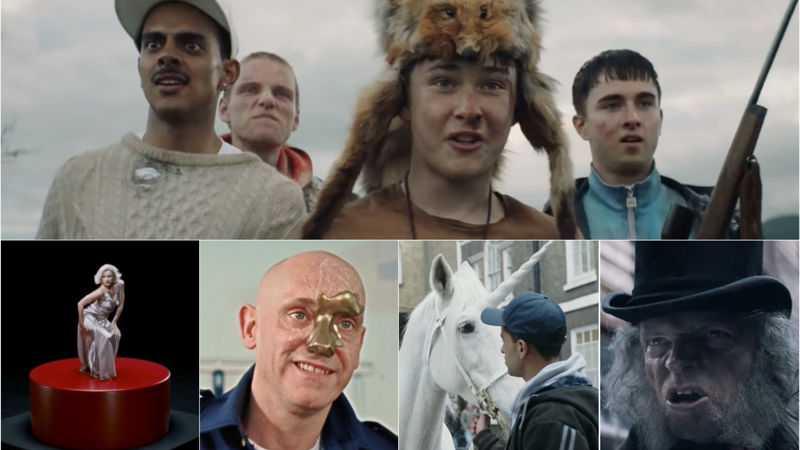


 + membership
+ membership





